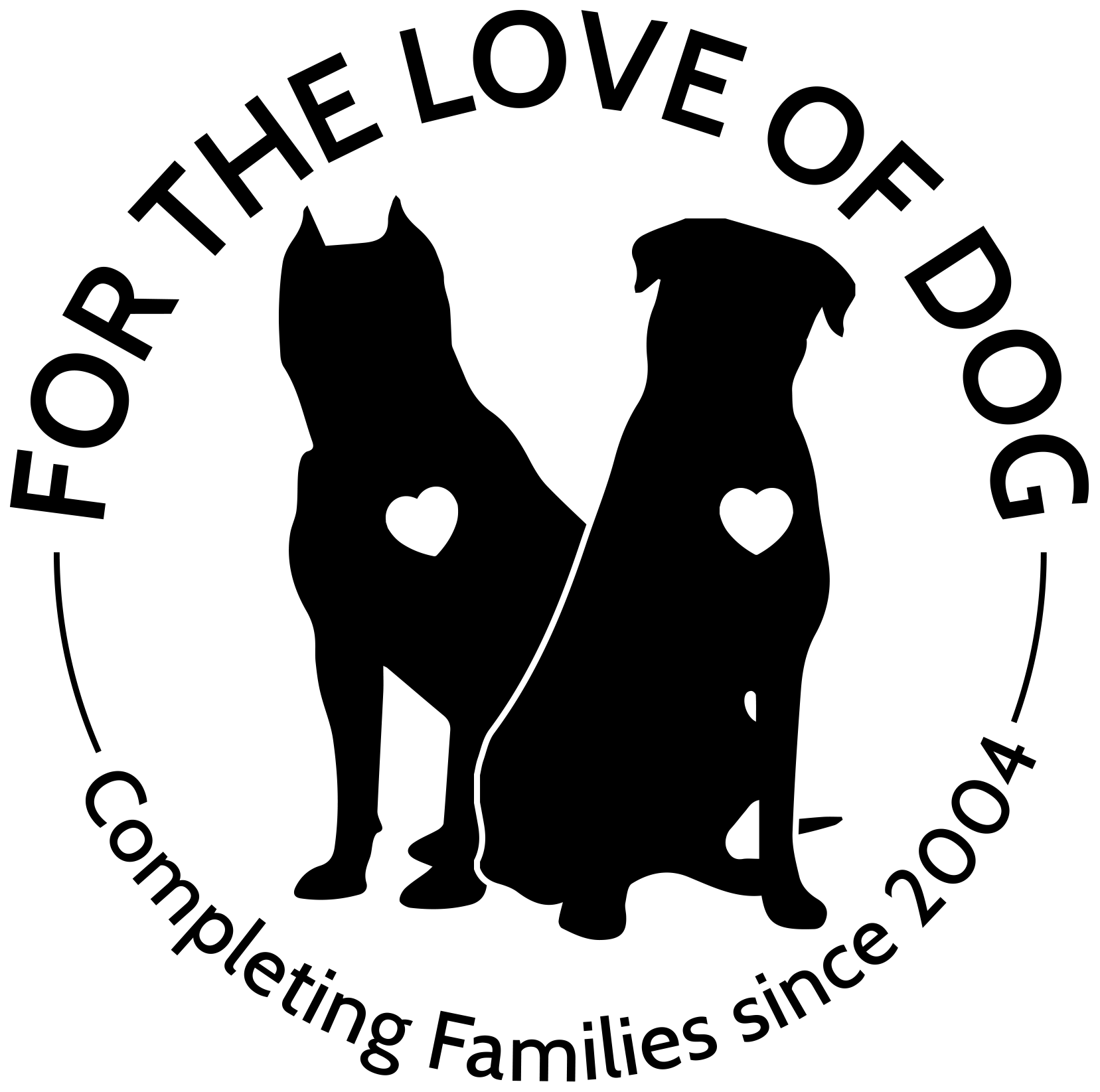Most likely, your new dog has spent the last few weeks with a foster family. In foster care, the dog will learn – or relearn – basic house manners, obedience, and crate training. Foster care is also the time we address other situations that will determine what type of family is appropriate for the dog.
It is important that you, the adoptive family, continue with what the dog has been learning in foster care. It’s also a good time to start obedience classes with the trainer you have chosen. No dog will walk right into your home and identify it as HIS/HER home. Chances are, your dog has been in a previous home, an animal shelter, a boarding kennel, and a foster home prior to coming to your home. For this reason, you need to set the ground rules on how you expect your dog to live in the house. Remember that YOU are the pack leader.
It is important not to view the dog as a “poor homeless creature” and attempt to compensate for what s/he has experienced prior to living with you. Your dog does not feel self-pity. Move along to setting the rules. If you don’t want your dog to get on the sofa in the future. Don’t let the dog on the sofa now. If you don’t want your dog to beg at the table in the future. Don’t let the dog do it now (and certainly don’t feed the dog from the table!). Set your dog up for success!
We encourage and recommend that you keep the dog on leash at all times – including in the house – for at least two weeks so that you can correct any behavior that you do not want (like counter surfing, chasing the cat, eliminating on another dog’s bed). Not only can you correct a situation in the present, you also build the relationship with your dog.
Pack order is especially important to strong-willed dogs like rottweilers and pitbulls. A pack needs a leader and the leader is YOU. Dogs do not consider themselves human, and humans have rights that dogs do not (sitting on furniture, going through doors first, etc). Dogs expect the leader to do these things first. If you show your dog that these things are not important to you, then the dog will assume the leadership role in these cases. Problems arise when the leadership role is unclear. The dog will not know what is important to you and what isn’t unless you tell them. It is likely that the dog will investigate and possibly challenge other leadership options (i.e. marking YOUR bed).
We strongly recommend that you continue to crate the dog when you are not home or can not supervise his/her activity. Crating is not cruel. It is not inhumane. A crate to a dog is similar to a “cave” – or to a child his “room”. A crate is the dog’s safe space as long as the crate is a positive tool. Allowing the dog to run freely in your home during the first few weeks when you are not present sets the dog up to make his own rules which could include soiling in the house and other destructive behavior. A crate is especially useful for house training and eliminates any confusion as to where elimination is appropriate. A dog generally will not soil his crate unless he is ill or unable to wait.
In the first several weeks – even months – your dog can earn privileges. We can not stress enough how critical this time is. Too much freedom right off the bat will result in an overly confident dog with habits and expectations that may be more difficult to overcome in the future. This is an excellent opportunity to take advantage of the dog’s will to please.
Now is not the time to reward your new dog with fresh bones or other tasty treats. A better treat for now would be a “cookie”, kong or synthetic bone that does not have the same value to the dog as a fresh bone. This insures that the dog does not have a reason to show possessiveness, or at least minimizes it. While the rescue can help you address some of the training that the dog has had in foster care, starting obedience classes with a local trainer who can help you hands-on with any challenges is the best option.
Please ask us if you need a list of trainers in your area.
Copyright 2000, 2002, 2019
Dale P Green
